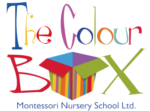We Practice
Montessori Method in conjunction with EYFS Curriculum
The 7 Areas of EYFS Learning and Development
Personal, Social & Emotional Development
Through positive and supportive relationships with adults children learn how to understand their own feelings, begin to accept the needs of others, creative strong bonds with their teachers and peers, gain confidence in their abilities, learn how to manage their emotions and become more confident in managing their personal needs independently.
Communication & Language
The development of children’s speech and communication skills is of paramount importance as it underpins all other areas of development. Children use language as a means to express their thoughts, ideas, and feelings, enjoy listening to stories and nursery rhymes, talk about the things that are important to them and learn to understand simple and complex concepts.
Physical Development
By creating play opportunities indoors and outdoors teachers support children to develop their core strength, spatial awareness, stability, control of their body movements, to practice their gross and fine motor skills. Children learn how to use one handed tools safely, they practise cutting with scissors, pouring from a jug, use mark making tools.
Literacy
Focusing on Reading which consists of language comprehension and word reading and Writing it aims to instil a lifelong love of books and reading. Children listen to their favourite stories, listen with increasing attention and recall, describe main events, join in, show awareness of rhyme, ascribe meaning to marks, link sounds to letters, write own name.
Mathematics
Through play and a wide range of activities children explore numbers and learn how to count, understand patterns, gain interest in shapes in their environment and use them appropriately for tasks, begin to make comparisons and use mathematical language, recognise numerals and develop a deep understanding the numbers to 10.
Understanding the World
Children are supported to make sense of their physical world and their community. They comment and ask questions about their familiar world, talk about the things they have observed, show interest in different occupations and ways of life thought a wide range of books and outdoor experiences like visits to museums and parks.
Expressive Arts & Design
Children engage with the arts, exploring a wide range of materials and media; they experiment with blocks, colours and marks, explore sounds, textures, begin to make-believe by pretending, develop preferences for forms of expression, build stories around toys and use available resources as props to support their play, play alongside other children.
The Montessori Principles
The guiding principles of Montessori education are the same across all age levels, and are grounded in over one hundred years of work with children around the world.
Respect
Maria Montessori profoundly respected children and the developmental powers that drive them to seek certain experiences. Montessori education reframes the adult/child relationship to place the child at the center of his own learning. In Montessori classrooms, teachers respect children as separate and unique individuals. They guide children to respect the people and objects in their environment, and as the child grows older, to respect and understand the connectedness between all living and non-living things, leading to the adolescent’s profound awareness of the complex web of human existence.
Discovery
One of the most profound differences between Montessori education and conventional education is that, in Montessori, children are given the experience of discovering the answer for themselves. This leads to a much deeper learning experience, and creates a lifelong love of learning as a self-directed process of problem-solving and discovery.
Prepared Environment
Children’s needs change as they move through stages of development. At each level of Montessori education, this difference is honored through the preparation of the classroom environment. The environment is prepared in every way for optimal development: physically, cognitively, socially and emotionally. By aligning the activities in the environment with what each child needs at any moment, Montessori prepared environments liberate children’s energy for growth and learning.
Imagination
Montessori classrooms support the development of imagination and creativity at every stage of learning. The open-ended activities allow children to explore new ideas and relationships, providing a foundation for self-expression and innovation. In the early years, the building blocks of imagination are firmly established through sensory exploration of the world, launching both imagination and creative self-expression.
Independence
From the moment of birth onwards, humans strive towards independence. Children feel this need very strongly; they want to do things for themselves, and to participate in the world around them. In Montessori classrooms, this natural drive towards independence is fostered through practical, social and intellectual experiences. The child becomes an active agent in her own education, saying, “Help me to do it myself”. We honor this by helping children move to increasingly higher levels of independence and self-reliance.
Freedom of Choice
Maria Montessori recognized that when allowed freedom of choice within clear, firm and reasonable boundaries, children act in positive ways that further their development. Freedom is frequently misunderstood, and many people take it to mean that children can do whatever they want. Montessori believed that freedom without boundaries was abandonment. In Montessori classrooms, expectations are clear, and children experience the natural and logical consequences of their choices. This freedom within limits allows for the natural development of self-regulation within the society of the classroom, as well as mirroring behaviors expected by society in general.
